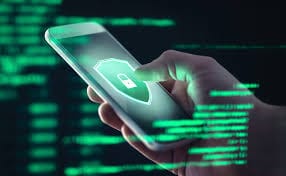Secure Your Digital Privacy
Your iPhone stores a wealth of personal data, from messages to financial apps, making it a prime target for cybercriminals. Learning how to stop hackers on iPhone is critical for protecting your digital privacy and enhancing your cybersecurity. Hackers exploit vulnerabilities through phishing, malware, and unsecured networks, potentially compromising your relationships and sensitive information. This article explores these threats, their legal implications, and practical steps to secure your device. By leveraging ethical hacking and robust mobile security strategies, you can fortify your iPhone against cyberattacks. Let’s dive into the methods hackers use and how to safeguard your digital life.

Common Threats Hackers Pose to Your iPhone
Hackers use a combination of technical exploits and social engineering to target iPhones. Understanding these threats is the first step to mastering how to stop hackers on iPhone and ensuring cybersecurity.
Phishing Attacks: Deceptive Credential Theft
Phishing scams are a prevalent method hackers use to gain access to iPhones. They send fraudulent texts, emails, or iMessages that appear to come from trusted sources, like Apple or your bank, tricking you into entering login details on fake websites. A Kaspersky guide on phishing highlights that mobile users are particularly vulnerable due to frequent notifications. These attacks can lead to account takeovers, threatening your digital privacy. Always verify sender authenticity and avoid clicking suspicious links to protect your device.
Malware and Spyware Infections
Although iOS is designed with strong security, malware and spyware can infiltrate iPhones through malicious apps, phishing links, or jailbroken devices. Hackers may disguise malware as legitimate apps to steal data or monitor activity. Recent posts on X reported spyware campaigns targeting iPhones via fake app downloads. Sticking to the official App Store and avoiding jailbreaking are essential mobile security measures. For expert guidance, explore cybersecurity services to secure your iPhone.
Legal Implications of iPhone Hacking
Hacking an iPhone is illegal under laws like the Computer Fraud and Abuse Act (CFAA) in the U.S. and the General Data Protection Regulation (GDPR) in the EU. A Harvard Law Review article notes that unauthorized access to mobile devices can result in significant fines or imprisonment, especially if personal data is stolen or misused. These laws protect digital privacy and emphasize the importance of cybersecurity compliance.
For iPhone users, understanding these legal risks reinforces the need for robust security measures. Engaging ethical hacking professionals can ensure compliance by identifying vulnerabilities in your device. Visit data protection resources for solutions to safeguard your iPhone.
Technical Vulnerabilities Hackers Exploit on iPhones
Despite Apple’s strong security framework, hackers target specific weaknesses to breach iPhones. Addressing these vulnerabilities is crucial for learning how to stop hackers on iPhone.
Unsecured Wi-Fi Networks
Public Wi-Fi networks are a common entry point for hackers, who use man-in-the-middle attacks to intercept data, such as login credentials, from iPhones. Recent X posts highlighted Wi-Fi-based attacks in public spaces like cafes and airports targeting iPhone users. Using a virtual private network (VPN) encrypts your connection, ensuring mobile security. A Center for Internet Security report recommends VPNs as a critical defense against Wi-Fi vulnerabilities.
Outdated iOS and App Versions
Hackers exploit unpatched vulnerabilities in outdated iOS versions or apps to install malware or gain unauthorized access. For instance, unaddressed flaws can allow remote exploitation of your iPhone. Regularly updating iOS and apps patches these vulnerabilities, strengthening cybersecurity. For professional security assessments, explore penetration testing services to identify weaknesses in your iPhone’s ecosystem.
Actionable Solutions to Stop Hackers on Your iPhone
Protecting your iPhone from hackers requires proactive measures and a commitment to digital privacy. Here are practical steps to secure your device and stop cybercriminals:
- Enable Two-Factor Authentication (2FA): Activate 2FA for your Apple ID and other accounts to require a verification code, preventing unauthorized access even if credentials are stolen.
- Use a Strong Passcode: Set a complex, six-digit (or longer) passcode or use Face ID/Touch ID to lock your iPhone securely.
- Keep iOS and Apps Updated: Install the latest iOS updates and app patches promptly to fix vulnerabilities hackers exploit.
- Use a VPN on Public Wi-Fi: Encrypt your internet connection with a reputable VPN to protect data on unsecured networks.
- Download Apps from the App Store: Avoid third-party app sources to prevent installing malware disguised as legitimate apps.
- Monitor Account Activity: Regularly check your Apple ID settings for unfamiliar devices or login attempts, and sign out of unrecognized sessions.
For advanced protection, consider ethical hacking services to test your iPhone’s security. Visit Hacker01’s ethical hacking page for tailored mobile security solutions.
The Role of Ethical Hacking in iPhone Security
Ethical hacking is a powerful tool for stopping hackers on your iPhone. White-hat hackers simulate cyberattacks to identify vulnerabilities, such as outdated software, weak passcodes, or misconfigured settings, before malicious actors exploit them. According to Hacker01, ethical hacking services are increasingly vital as mobile threats grow in complexity.
For individuals and businesses, ethical hacking ensures compliance with data protection regulations and builds trust by safeguarding sensitive information. Penetration testing and vulnerability assessments can uncover risks in your iPhone’s settings or connected apps, enhancing overall cybersecurity. By partnering with professionals, you can stop hackers and maintain a secure digital environment.
Conclusion
Mastering how to stop hackers on iPhone empowers you to protect your digital privacy. From phishing scams and malware to unsecured Wi-Fi and outdated software, hackers exploit a range of vulnerabilities. By enabling 2FA, using a strong passcode, keeping iOS updated, and leveraging a VPN, you can significantly reduce risks. For advanced security, ethical hacking services provide proactive solutions to identify and fix weaknesses. Explore Hacker01’s cybersecurity solutions to secure your iPhone and ensure a safe digital experience. Take action today to stop hackers and maintain trust in your online interactions.